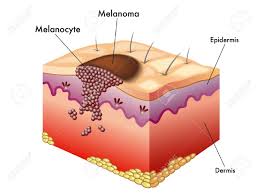Leave a Comment:
1 comment
[…] Non-Melanoma, Melanoma In-Situ Diagnosed with Melanoma? Get a Second Opinion! Radon Gas-Risk of Malignant Melanoma Cutaneous Squamous Cell […]
Reply
Learn about conventional, complementary, and integrative therapies.
Dealing with treatment side effects? Learn about evidence-based therapies to alleviate your symptoms.
Click the orange button to the right to learn more.

I am a cancer survivor who has an increased his risk of malignant melanoma. Further, I am selling my house. When I came across the article linked below, I had to read it. People buying or selling a house should learn about possible radon gas in your basement.
For the record, I’m tired of reading and thinking about all of the many environmental reasons why I have an increased risk of cancer. It seems as though every time you turn around, something else causes cancer.
However I have to say that I/we all need to increase our awareness of anything that increases our risk of cancer- especially malignant melanoma. I have to keep my head in the game.
I am writing about radon gas and how it increases the risk of malignant melanoma because reducing this risk is easier than most of the other risks outlined in the mind map linked below. For example my autologous stem cell transplant increased my risk of MM. I can never reduce that risk.
Therefore my approach to reducing my risks of skin cancer is to supplement with those evidence-based, non-conventional therapies shown to reduce skin cancer as well as live those lifestyle therapies (nutrition, detox., etc.) that research as shown can reduce the risk of relapse.
Have you been diagnosed with skin cancer? Would you like to reduce your risk of relapse? Please scroll down the page, post a question or comment and I will reply to you ASAP.
To Learn More About Melanoma- click now
Thank you,
Recommended Reading:
“Background– Although exposure to UV radiation is the major risk factor for skin cancer, theoretical models suggest that radon exposure can contribute to risk, and this is supported by ecological studies. We sought to confirm or refute an association between long-term exposure to residential radon and the risk for malignant melanoma (MM) and non-melanoma skin cancer (NMSC) using a prospective cohort design and long-term residential radon exposure….
Over a mean follow-up of 13.6 years of 51,445 subjects, there were
The adjusted IRRs per 100 Bq/m3 increase in residential radon levels for BCC, SCC and MM were 1.14 (95% CI: 1.03, 1.27), 0.90 (95% CI: 0.70, 1.37) and 1.08 (95% CI: 0.77, 1.50), respectively. The association between radon exposure and BCC was stronger among those with higher socio-economic status and those living in apartments at enrollment.
Long-term residential radon exposure may contribute to development of basal cell carcinoma of the skin. We cannot exclude confounding from sunlight and cannot conclude on causality, as the relationship was stronger amongst persons living in apartments and non-existent amongst those living in single detached homes.”
“It is undisputed that radon is a risk factor for developing lung cancer. New research by the Swiss Tropical and Public Health Institute (Swiss TPH) in the context of the Swiss National Cohort study now shows that the naturally occurring radioactive gas radon within one’s home also increases the risk to develop malignant skin cancer (malignant melanoma)...
“The younger the individual is, the greater the impact of radon on the risk of developing the disease…
Radon more dangerous for young people
“Our study shows that, when radon decays, radioactive alpha particles not only destroy lung tissue but can also affect the skin…”
“The study included 5.2 million adults (mean age 48 y) and 2,989 skin cancer deaths, with 1,900 indicating malignant melanoma (MM) as the primary cause of death…
There is considerable variation in radon and UV exposure across Switzerland. Our study suggests both are relevant risk factors for skin cancer mortality…”
[…] Non-Melanoma, Melanoma In-Situ Diagnosed with Melanoma? Get a Second Opinion! Radon Gas-Risk of Malignant Melanoma Cutaneous Squamous Cell […]
Reply